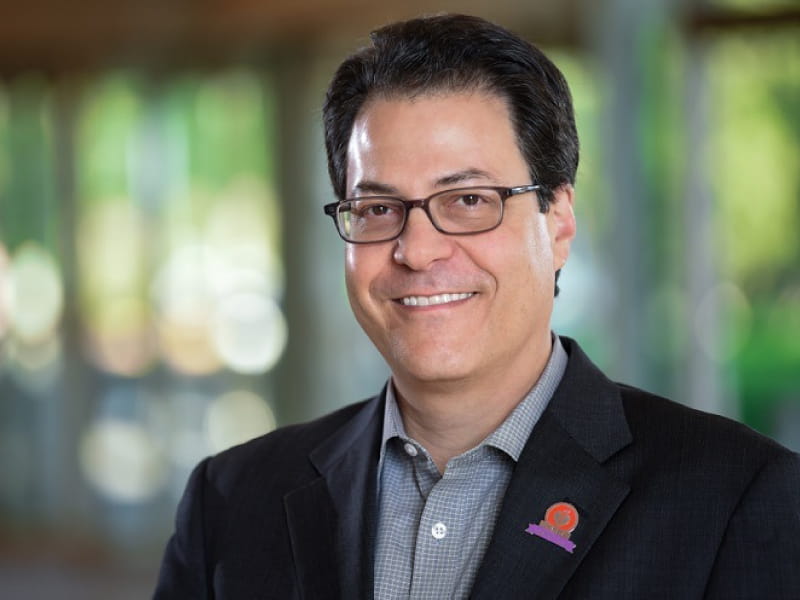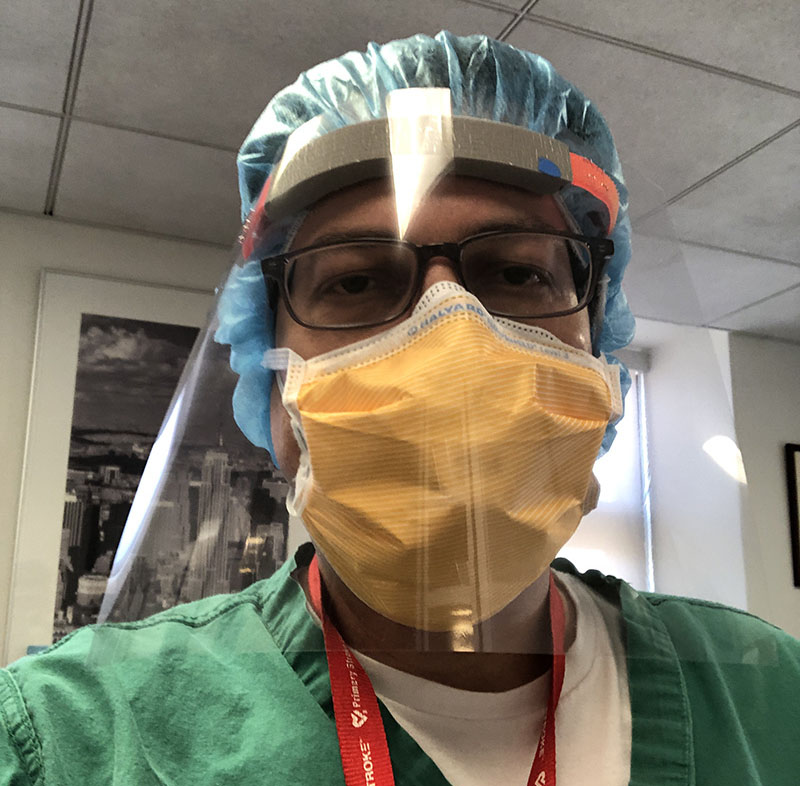His term as AHA president over, Elkind still aims to tackle pre-pandemic priorities

When Dr. Mitch Elkind became president-elect of the American Heart Association, he had about 15 months to get ready to take over the organization's top volunteer leadership position.
As only the second neurologist in the job, Elkind sought to build a stronger bridge between the worlds of heart health and brain health.
He hardly got a chance.
Months before Elkind's ascension, the pandemic scuttled many plans for 2020 and beyond. Elkind immediately became a pivotal leader in the AHA's response to COVID-19 and the inequities it further exposed.
"You do what you're called to do," said Elkind, a professor of neurology and epidemiology at New York-Presbyterian Hospital/Columbia University Irving Medical Center. "I wish the pandemic never had to happen, but I was glad that I was able to play a role in the American Heart Association addressing it."
Said AHA CEO Nancy Brown: "Mitch's tenure came at an unprecedented time for our organization and the world. His keen acumen and calming presence helped us to meet the moment as a public health leader."
Elkind's expertise in neurology and epidemiology gave him multiple viewpoints on the pandemic. He also studied philosophy in college and continues to see the world through that lens.
He describes himself as "a listener and a thinker," and he's an eloquent writer. So, it's fitting that several of the hallmarks of his tenure are articles published in medical journals.
Before the coronavirus was declared a pandemic — and while Elkind was still president-elect — he began writing about the AHA's role in the global response. He became the lead author of a journal article co-written by then-President Dr. Robert Harrington and his predecessor Dr. Ivor Benjamin.
In May 2021, he was the lead author — along with Harrington and Dr. Donald Lloyd-Jones, who will succeed Elkind — on a journal article looking back at a full year of the pandemic. Headlined "A Return to Normal Is Not Good Enough," the authors described the importance of using the pandemic "as a teachable moment that can lead to improved health care, public health and science."
Perhaps the most teachable lesson of his tenure was the connection between structural racism and health equity. That became the focus of a presidential advisory Elkind considers among the proudest accomplishments of his term.
Released in November, "Call to Action: Structural Racism as a Fundamental Driver of Health Disparities" refers to the devastating combination of the pandemic and the police killings of George Floyd and Breonna Taylor as "reminders that structural racism persists and restricts the opportunities for long, healthy lives of Black Americans and other historically disenfranchised groups."
"There was a real acuity to this; it was as urgent as anything in a medical journal would be," Elkind said. "The pandemic showed that we have big structural problems in this country that need to be addressed. Where we have bad systems, we have bad care. A pandemic emphasizes the importance of thinking about structures and systems. The structural racism paper was about changing those structures."
Structural racism is one of the barriers to health the AHA is working to break down as part of another major element from Elkind's tenure — the organization's new 2024 Impact Goal, which aims to achieve equitable health for all.
Elkind also helped shape some of the neurology questions on the organization's COVID-19 CVD Registry and remained involved in the project as a member of its steering committee. He also took part in the AHA's funding of rapid response grants.

As the leader of a major public health organization, he promoted education about the pandemic's effects on cardiovascular disease, the importance of getting vaccinated and the "Don't Die of Doubt" campaign, which reminded people that, even during a pandemic, they still need to call 911 when experiencing symptoms of a stroke or heart attack.
In a pandemic-related twist, something else set Elkind's tenure apart from all other AHA presidents: He didn't travel. While he represented the organization in countless meetings and conferences, he did so through his laptop.
"My anecdotes and memories are a little bit different than other presidents' since most of mine took place right here," Elkind said, laughing, during yet another video call from his home office.
As Elkind transitions to immediate past president, he'll take with him a meaningful to-do list. The top item might sound familiar: Build a stronger bridge between the worlds of heart health and brain health.
And, after 15 months of all those video sessions, he knows exactly who to call.
"Interacting with cardiologists and cardiovascular scientists from China, from Japan, from Brazil, from the Interamerican Society of Cardiology, we'd talk about the pandemic, of course, but then I would ask, `What are you doing about stroke? Who do you work with on stroke? Do you realize how important stroke is in your community?'" Elkind said. "Those issues are still front-and-center in my mind."
Elkind leaves the office with the dual distinctions of being the second neurologist to serve as AHA president and the first to spend the entire term with the nation in the grip of a pandemic.
"A small community of people have had the chance to serve as president of this incredible organization," Elkind said. "It really was an opportunity to learn a lot about myself, my abilities, my limitations, and my interests. I am grateful to have had the chance to lead during this historic time."





